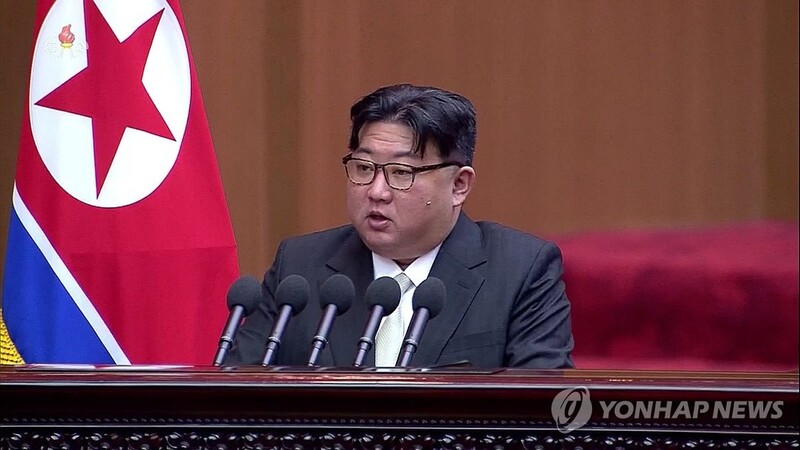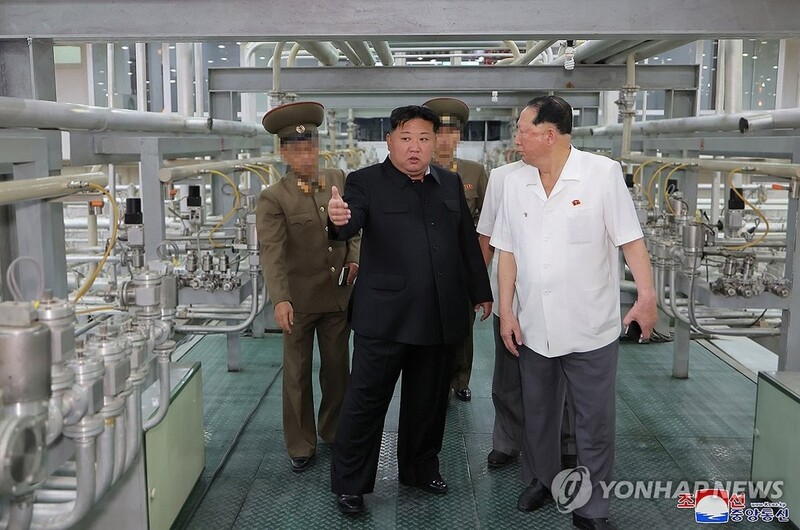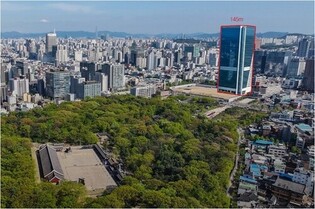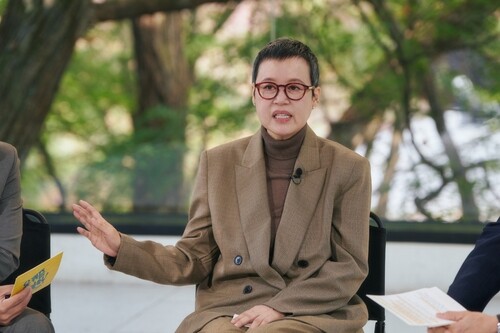 |
| ▲ This image, captured from footage of North Korea's state-run Korean Central Television on Jan. 16, 2024, shows the North's leader Kim Jong-un speaking at a Supreme People's Assembly meeting held the previous day in Pyongyang. (For Use Only in the Republic of Korea. No Redistribution) (Yonhap) |
 |
| ▲ This file photo, carried by North Korea's official Korean Central News Agency on Sept. 13, 2024, shows the North's leader Kim Jong-un (C) visiting a uranium enrichment facility while calling for an exponential increase in nuclear weapons. (For Use Only in the Republic of Korea. No Redistribution) (Yonhap) |
N Korea-parliamentary meeting
N. Korea likely to scrap key inter-Korean agreement at next week's parliamentary meeting: Seoul
By Kim Soo-yeon
SEOUL, Oct. 2 (Yonhap) -- North Korea is likely to scrap a landmark inter-Korean agreement signed in 1991 at next week's key parliamentary meeting, as its leader Kim Jong-un has called for revising the constitution to define South Korea as its primary foe, the unification ministry said Wednesday.
North Korea will convene the 11th session of the 14th Supreme People's Assembly (SPA) on Monday to revise the constitution, nine months after Kim called for removing unification-related clauses and newly stipulating the nation's territorial boundaries, including the maritime border.
At a year-end party meeting in December, he defined inter-Korean ties as relations between "two states hostile to each other" and vowed not to regard the South as a counterpart for reconciliation and unification.
The unification ministry said North Korea is likely to scrap inter-Korean agreements in the political and military fields, including the Basic Agreement of South and North Korea. In February, the North renounced economic-related agreements with the South.
Under the agreement signed in 1991, inter-Korean ties are defined as a "special relationship" tentatively formed in the process of seeking reunification, not as state-to-state relations. The North is expected to scrap the accord as it runs counter to Kim's "two hostile states" stance.
On the maritime border, North Korea may either newly stipulate it in a territorial clause in a revised constitution or announce a new sea border without including it as a provision, according to the unification ministry.
"There is a possibility that North Korea could vaguely state the maritime border without specifying its detailed locations," the ministry said.
Experts said North Korea could unilaterally declare a new maritime border south of the current de facto sea border, known as the Northern Limit Line (NLL), in a bid to use it as an excuse to undertake provocations.
North Korea has long demanded the NLL be moved farther south as it was unilaterally drawn by the U.S.-led U.N. Command after the 1950-53 Korean War.
Instead of the NLL, North Korea has so far insisted on its own version of the maritime demarcation lines that are drawn farther south than the NLL.
The ministry also said North Korea could carry out an organizational revamp or personnel reshuffle to enable the foreign ministry to take over inter-Korean affairs.
North Korea changed the name of the United Front Department, a key organ in charge of inter-Korean affairs at the ruling Workers' Party, into Bureau 10, in line with Kim's order to disband agencies dealing with affairs with the South.
"North Korea will push to institutionalize its 'two hostile states' stance and seek to create security uneasiness in our society, as well as raise tensions on the Korean Peninsula with measures related to the territorial clause," the ministry said.
(END)
(C) Yonhap News Agency. All Rights Reserved













![[게시판] 안무저작권협회, 국가대표 출신 선수 출연 토크콘서트](https://korean-vibe.com/news/data/20251118/yna1065624915929065_337.jpg)









